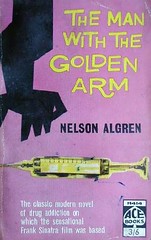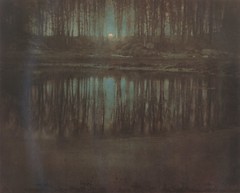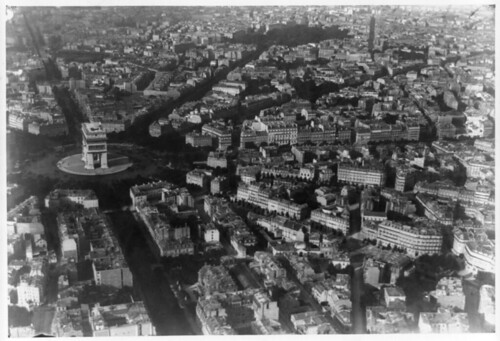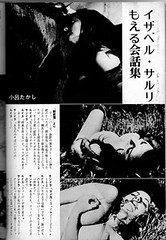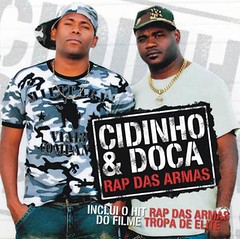
“Rap das Armas” (1990s) by MC Cidinho and MC Doca
MC Cidinho and MC Doca
Rap das Armas (Rap of Weapons) is a Brazilian “proibidão” song by that has become very popular through the film 2007 film Tropa de Elite, however the original song was already very popular in the early 1990s (there is no info on original release dates on discogs). The song illustrates the elite police who invade the favelas (shantytowns) on a daily basis to fight the drug dealers, with lyrics about fireweapons such as the AK47 popular among said dealers and their confronts with the police and other drug dealer factions, but clearly being on the side of bad guys.
Because of the allegations that the songs are an apology for crime, they are banned from recording and broadcasting. The obvious analogy here is with its American counterpart gangsta rap.
The song was produced by MC Cidinho and MC Doca. The song, despite its popularity, is never played on the radio, and was taken out of the movie’s soundtrack after 2 weeks. The motive behind this was that the lyrics in “Rap das Armas” praise the use of drugs, the criminal factions of Rio de Janeiro, and the drug dealers themselves.
The song illustrates the violence of everyday life in the favelas. Brazilians are in danger not only when they take drugs but also when they take the bus or attend funk dances.
Proibidão, which literally translates to “strongly prohibited,” is a genre of Brazilian funk (pronounced “funkee”) music originating from the favelas of Rio de Janeiro where it began in the early 1990s as a parallel phenomenon to the growth of drug gangs in the many slums of the city. The drug gangs sponsored DJs and baile funks in the favelas they controlled to spread respect and love for their gang as well as hate to the other gangs. The music that resulted is proibidão and its most famous example is Rap das Armas.
I’ve been repeatedly listening to this song, enthused by the sheer simplicity of it. Researching its history brings memories of the film Pixote (1980) by Hector Babenco, an arthouse hit when it came out and my first exposure to the favelas. The favelas were recently depicted in Cidade de Deus, one of the best films of the 2000s.
[Youtube=http://www.youtube.com/watch?v=SrAZ48gHJII&]
Parapapapapapapapapapa,
papara papara papara clack bum,
Parapapapapapapapapapa!
The original lyrics:
Morro do Dendê é ruim de invadir
Nós com os alemão vamos se divertir
Porque no Dendê eu vou dizer como é que é
Aqui não tem mole nem pra DRE
Pra subir aqui no morro até a BOPE Treme
Não tem mole pro Exército, Civil nem pra PM
Eu Dou o maior conceito para os amigos meus
Mas morro do Dendê, também é terra de Deus
Vem um de AR15 e outro de 12 na mão
Vem mais um de pistola e outro com 2 oitão
Um vai de Uru na frente, escoltando o camburão
Vem mais dois na retaguarda mas tão de crok na mão.
…
De AK47 na outra mão a metralha
Esse rap é maneiro eu digo pra vocês
Quem é aqueles caras de M16
A Vizinhança dessa massa já diz que não agüenta
Nas entradas da favela já tem ponto 50
E Se tu tomar um “PÁ” será que você grita?
Seja de ponto 50 ou então de ponto 30 …
Translated and annotated lyrics[2]
The neigbourhood of Dendê is hard to invade
We with the Germans (German from enemy in the WWII meaning, by analogy, the police; it could also refer to gangs from the Complexo do Alemão favela) will have some fun
Because here in Dendê I will tell you how it is done
Here there is no “easiness” to the DRE (special police)
To climb up this neigbourhood even the BOPE (Police Special Forces) is afraid
Here there are no “easiness” to the Army the Civil(ian police) or to the P.M. (Military Police)
I give the best advice to the friends of mine
But Dendê neighbourhood, is also God’s land
There comes one with AR15 and another with a 12 (gage) in their hands
One cames with a pistol and another with two big eights (heavy arms again)
One comes with a “Uru” in the front, escorting the dumb ass (police officer)
Two more follow with Glocks in their hands
…
With an AK47 and the other with a machine gun
This rap is really cool, I can tell to you
Who are those guys with M-16
The neighbours of all our people (the Favelas) are already saying that they can not handle it (here it refers to the white middle and high classes of Rio who live properly in the city)
At the doors of the favelas there is already .50 (caliber)
And if you get a Pá! (BOOM!) will you scream?
Being of .50 or .30 (weapons’ calibers).


